Building Scalable Web Applications with Laravel: Best Practices and Architectural Patterns
-
Caploitte
-
08 June 2024
-
05 Min Read
What is Laravel?
The importance of scalability
How Does Laravel Help with Scalability?
Why Develop Websites Using Laravel?
Keeping Your Code Organized with Laravel’s MVC Architecture
Conclusion
Websites are created by programmers using specialized tools, and Laravel is a well-known tool that makes this process easier for websites created with PHP, a popular programming language. These kinds of tools are widely available, but Laravel is gaining a lot of traction due to its ease of use and flexibility. This implies that programmers can develop websites with a wide range of functionality without the tool getting in the way. In addition, Laravel comes with a ton of fantastic features that are pre-installed, such as tools for maintaining the security and organization of your website and a friendly community of programmers for assistance in case you run into trouble.
However, building a website that is easy to maintain and can expand requires more than just using Laravel. What happens to a website that is small at first but suddenly receives a ton of traffic? An effectively constructed website can withstand this expansion, while a poorly constructed website may slow down or even crash. We’ll cover some professional advice on creating Laravel websites that can support large numbers of users and are simple to modify and maintain in this article. These websites are called “scalable” and “maintainable” by programmers, and by following our tips you can build websites that are both!
What is Laravel?
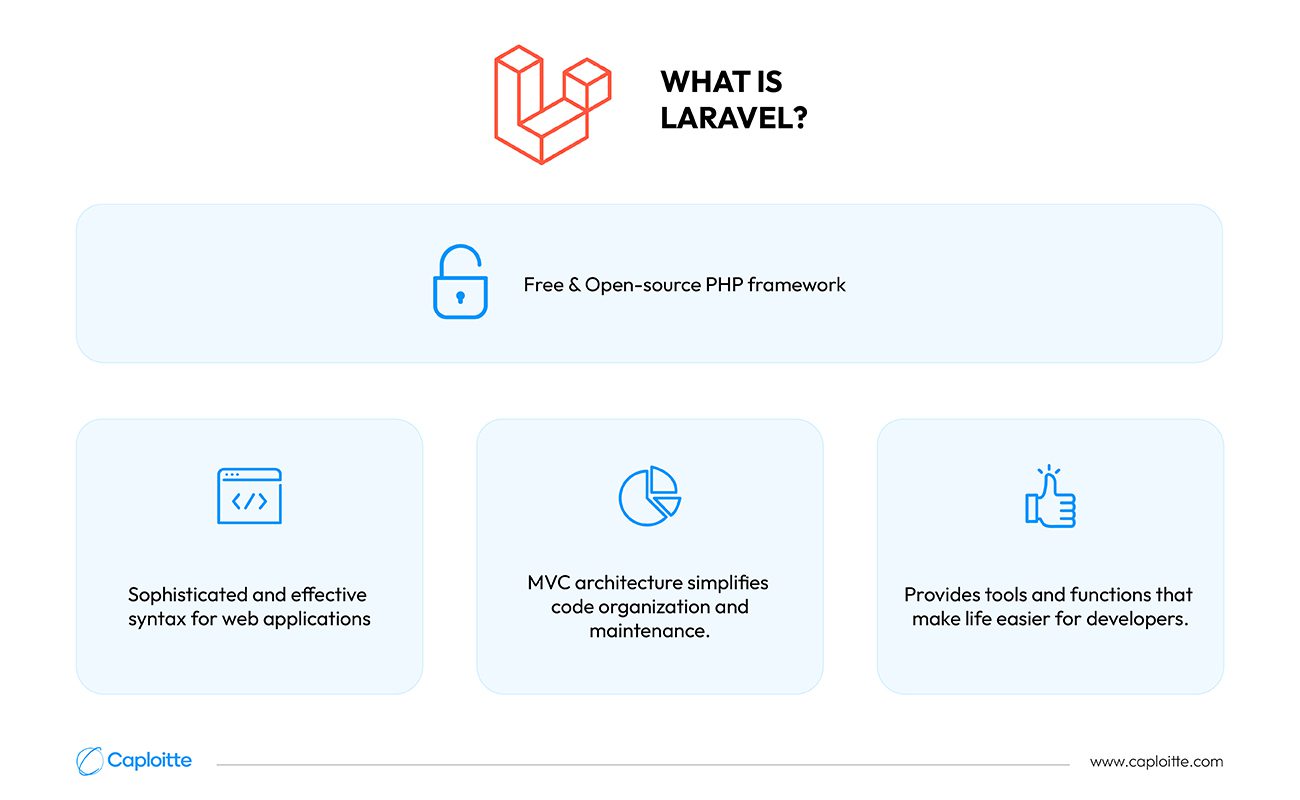
Let’s take a brief look at what Laravel is before discussing its significance in creating scalable web apps. Laravel is a free, open-source PHP framework that provides a sophisticated and effective syntax for creating online applications. Routing, authentication, and database administration are just a few of the many functions and tools it offers that make life easier. Model-View-Controller (MVC) architecture is followed by Laravel, which makes code organization and maintenance simple.
The importance of scalability
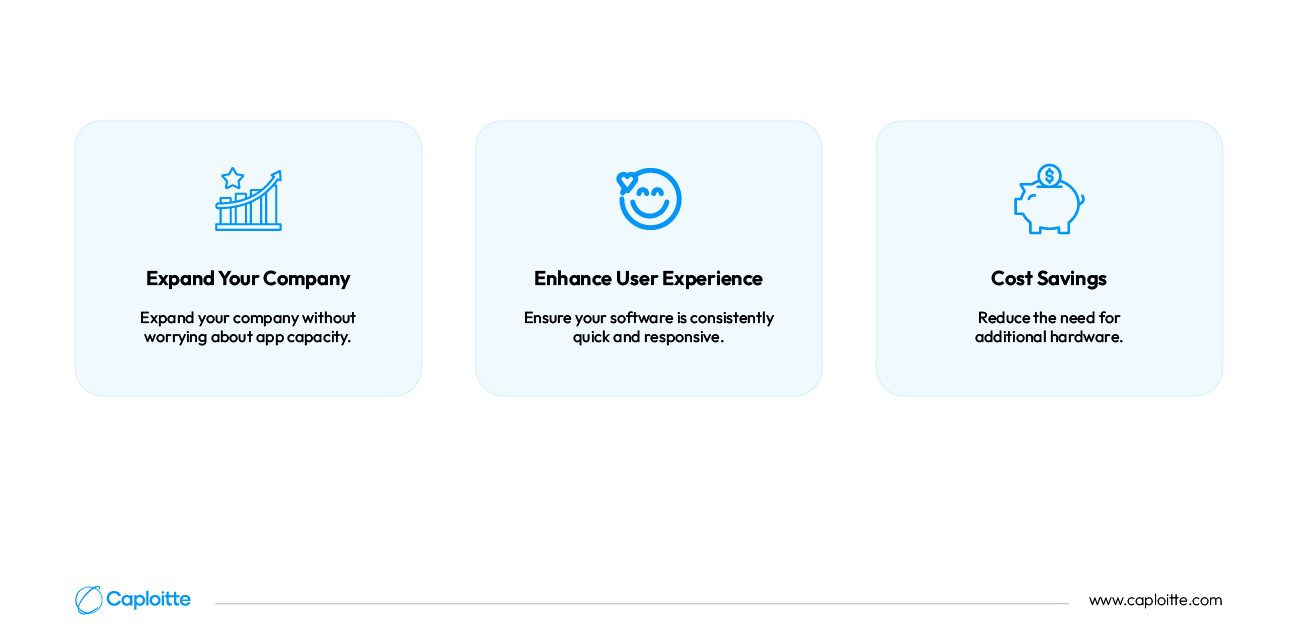
A system’s scalability is its capacity to withstand growing loads without experiencing performance degradation. Scalability in web applications refers to the capacity to accommodate an increasing number of users without experiencing app crashes or slowdowns.
Scalability is crucial for several reasons. First of all, it lets you expand your company without worrying about your app’s capacity to accommodate the extra users. Second, by guaranteeing that your software is consistently quick and responsive, it can help you in enhancing the user experience. In addition, when your program expands, scalability may save you money by lowering the need to buy additional hardware.
Due to its scalability-focused architecture, Laravel is an excellent option for developing scalable web applications. Several capabilities that could help in scaling your project are offered by the framework, such as:
- Laravel can remember things users do on the site, so the site loads faster.
- Laravel can make users wait for things to happen on the site without slowing everything down.
- Laravel can work with different ways of storing information on the site.
- The instructions for Laravel are clear and well-written, so it’s easier to fix things if needed.
How Does Laravel Help with Scalability?
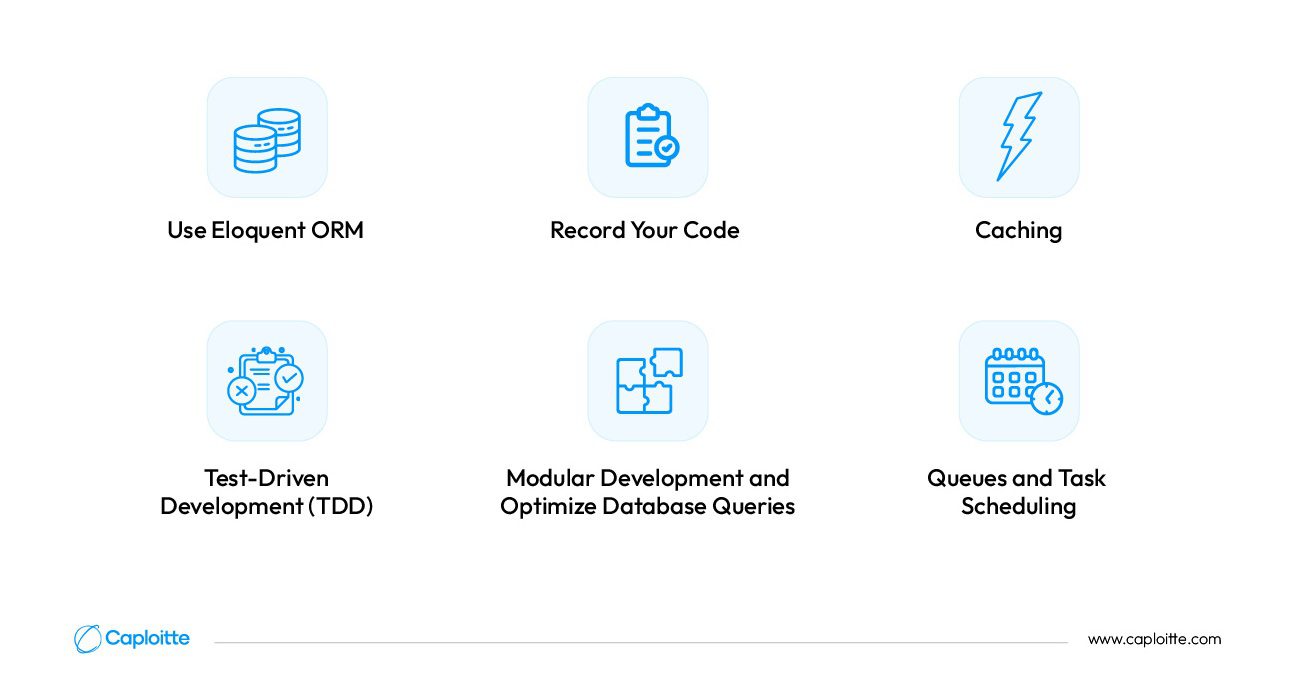
Being able to manage development is crucial when it comes to website development. This implies that even with an increasing number of visitors, your website should continue to function properly. Because Laravel includes capabilities that make it simple to expand websites as your business grows, it’s an excellent solution for this. Laravel uses the following features to make your website more scalable!
1. Use Eloquent ORM
Eloquent ORM, a functionality provided by Laravel, makes database management simple. You can implement an object-oriented approach to interact with your database, just like you would with ordinary objects in your code, in place of writing intricate SQL queries. This improves the readability, maintainability, and cleanliness of your code over time.
Additionally, Eloquent offers some practical tools to further enhance the efficiency of dealing with your database. For instance, it makes it simple to create database queries without having to write raw SQL. Additionally, Eloquent has eager loading features, which allow you to obtain relevant data in addition to the original data you request.
By doing this, you could reduce the amount of database queries your application needs to do, which can increase speed. Eloquent also has support for timestamps and soft deletes. You can designate a record as removed using soft deletes without really deleting it from the database. All things considered, Eloquent ORM is a strong feature that makes database management in Laravel easy and effective. In addition to several practical features that help you save time and effort, it offers a clear and expressive interface for interacting with your data.
2. Record Your Code
It’s essential to provide precise and comprehensive instructions for your online application. It makes it simpler for everyone to collaborate on the project, resolve issues as they arise, and maintain operations going forward. Writing excellent documentation is similar to providing new team members with a road map for understanding the code. As a result, there is less confusion and increased efficiency throughout. Essentially, creating exceptional web apps using Laravel entails employing optimal techniques, possessing requisite technical expertise, and always striving for exceptional quality. Although these pointers are an excellent spot to start, working with a business that specializes in Laravel development can help you advance your project.
3. Caching
One method for keeping frequently requested material in memory is caching. Redis and Memcached are two caching technologies that Laravel supports and that can greatly improve your application’s performance and responsiveness. As a result, there can be an increase in performance due to fewer database access requests. Caching data is simple and straightforward using Laravel’s robust caching architecture. Your web application can handle more concurrent users and save server strain by caching frequently requested data. By lowering server load and response times, these solutions improve the functionality of online applications and guarantee a seamless user experience even during periods of heavy traffic.
4. Test-Driven Development (TDD)
In software development, there’s a practice called Test-Driven Development (TDD). It means writing tests for what your code should do before you actually write the code itself. This helps catch any mistakes early on and makes sure your code works as planned. Laravel, the development framework, has built-in tools to make this testing process easier. A good Laravel development company will use these tools to write thorough tests that check every part of your code. This way, they can find problems early in the development process, before they become bigger issues. This saves time and money in the long run, and it also makes your application more reliable. Essentially, TDD helps to ensure that your code is high-quality and works as expected from the very beginning.
5. Modular Development and Optimize Database Queries
Laravel likes to keep things organized. It encourages splitting your app into smaller building blocks, like bricks in a Lego set. This way, you can improve or expand specific parts without affecting everything else. Adding new features or making existing ones bigger becomes a breeze.
Another important aspect of a fast-running Laravel application is how it talks to the database. Laravel provides tools to write efficient queries, which basically means asking the database for information in a way that’s easy for it to understand. Using these tools helps you avoid common mistakes that can slow things down, like having to ask the database multiple times for the same information.
6. Queues and Task Scheduling
With the built-in functionality of Laravel, you can automate operations that do not require your direct attention and operate in the background. This is particularly useful for time-consuming repetitive tasks like processing massive volumes of data, sending emails to a list of people, or producing reports. You can prevent your application from slowing down while it’s working on these activities by scheduling them to execute at certain periods. In this manner, even while your program is occupied with various background duties, it remains responsive and functions effectively for users.
Why Develop Websites Using Laravel?
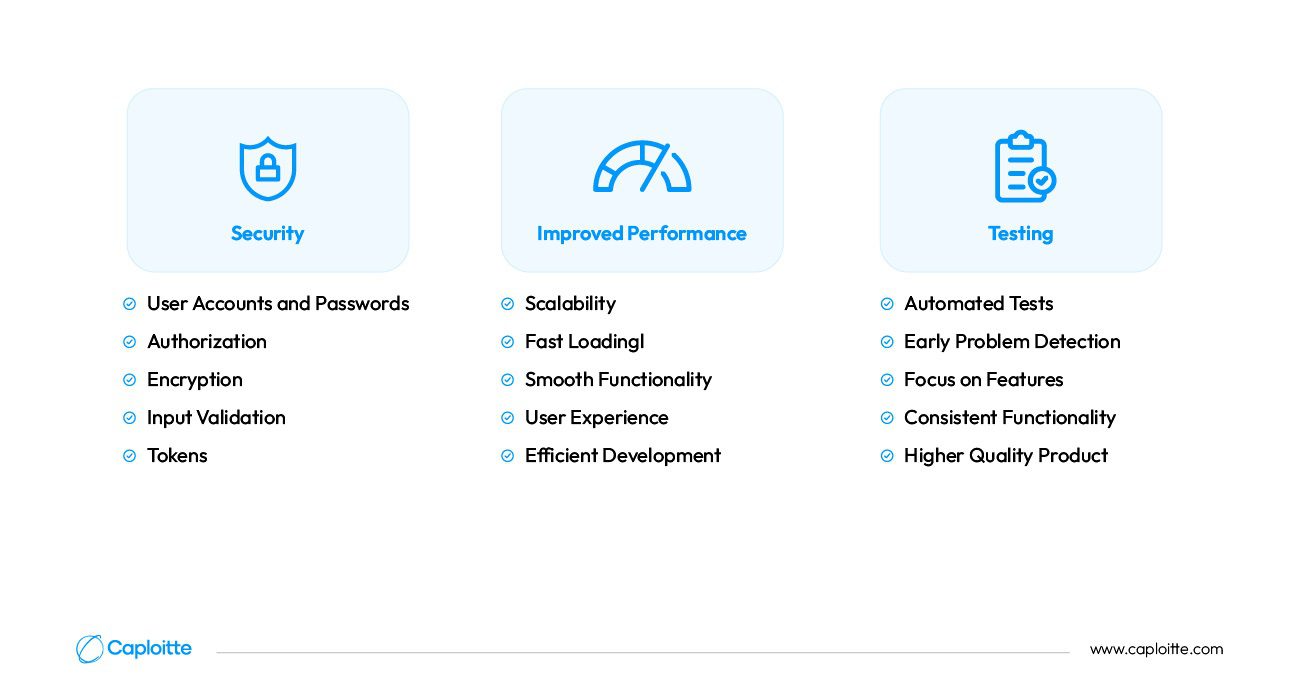
Let’s examine why Laravel has become so well-liked by developers globally before getting into the specifics. Here are some compelling reasons:
1. Security:
Security is ingrained in Laravel, saving developers time and ensuring the security of your application. Create user accounts and passwords with ease using Laravel. You can also manage the permissions of individual users to view and perform certain things within the application. Ensuring that users can only see the information they are authorized to view is crucial, and this process is known as authorization. Your data is further secured by Laravel through the use of encryption, which jumbles data using a secret code. This encryption makes it unreadable even if someone hacks into your system. In addition, Laravel helps prevent other security problems by making sure users can only submit valid information, like entering a real email address when they sign up for an account. This is called input validation, and it’s another important layer of security. Laravel also helps generate special codes, called tokens, to further secure actions within the application. Overall, Laravel’s built-in security features make it a strong foundation for safe and reliable web applications.
2. Improved Performance:
Laravel is designed from the ground up to meet the increasing requirements of contemporary online applications. This implies that your program won’t get sluggish or slow down as your user base grows. Performance is another top priority for Laravel, so apps created with it load quickly and function smoothly, giving your users a great experience. If you have an e-commerce component, happy users are more inclined to stay and interact with your app, which can improve sales and conversions. Given these capabilities, programmers can create these outstanding applications more quickly and efficiently. They also ease the development process for them.
3. Testing:
A built-in testing suite in Laravel can automatically perform tests on your application to ensure proper operation. For developers, this can save a ton of time because it can assist in identifying problems and defects early in the process. Instead of spending time manually testing everything, developers can focus on creating new features and enhancing the program by automating these tests. Furthermore, automated testing may assist in guaranteeing that the program always functions as intended, regardless of the inclusion of new features or coding modifications. This can lessen the possibility of bugs being introduced and assist in enhancing the application’s quality. In the end, automated testing may help companies save time and money while simultaneously providing their clients with a higher-quality product.
Keeping Your Code Organized with Laravel’s MVC Architecture
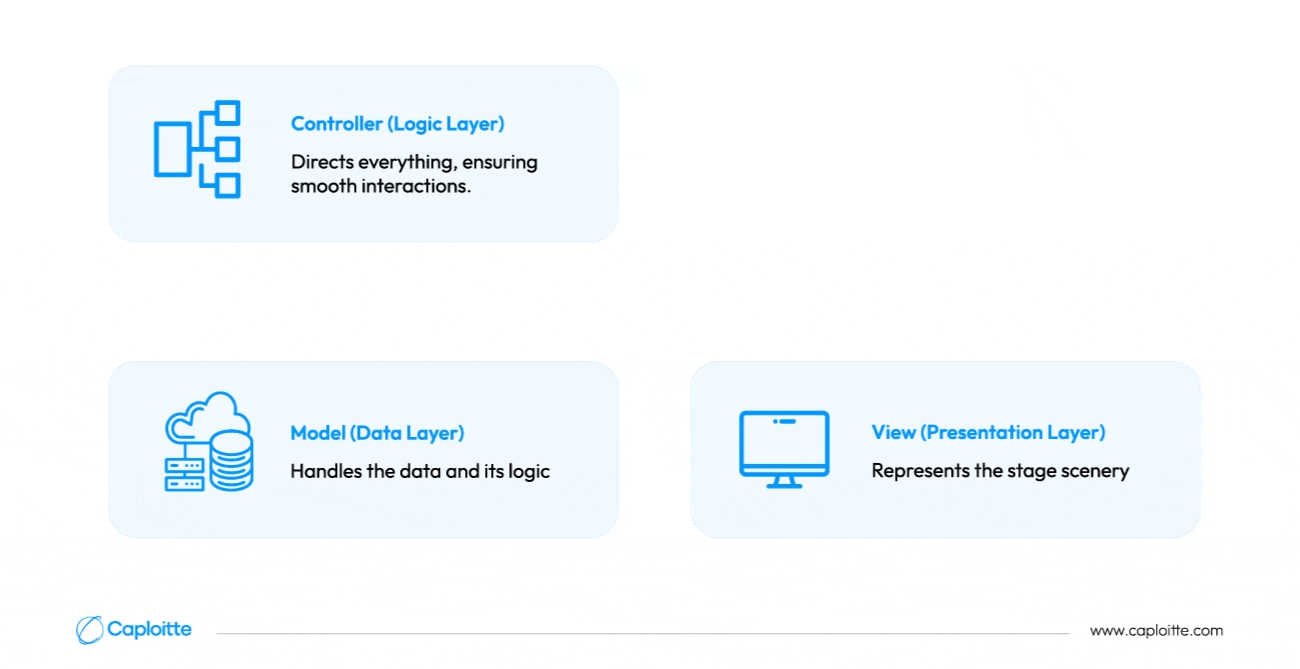
Model-View-Controller, or MVC, is a popular method for structuring applications on which Laravel is based. This divides the application into the controller, view, and model. Imagine them as actors in a play. The model handles the data and how it works, the view is like the stage scenery, and the controller directs everything, making sure the actors (data) and scenery (view) work together smoothly.
This separation makes Laravel applications easier to manage and improve. Developers don’t have to worry about breaking other components while working on one. For example, you can change the display of your application without impacting the model, which represents how the data functions. This keeps things organized and efficient.
Conclusion
In the end, Laravel development companies are an excellent option if you’re searching for a web application that can expand and change along with your organization. When paired with the experience of a reputable development company, Laravel’s robust capabilities may guarantee that your web application can support an increase in users while maintaining its speed and responsiveness as your company expands. This implies that users of your app will like their experience, which could help you draw in new users and maintain the loyalty of current ones. In the end, a well-crafted Laravel application may be a great advantage for your company, enabling you to surpass your objectives and succeed.
Share this post:
Read More
- All
- AI
- AR
- DevOps and CI/CD
- E-commerce
- FinTech
- IoT
- Mobile Development
- Outstaffing
- Security
- SEO
- Tech Trends
- Web Design
- Web Development




